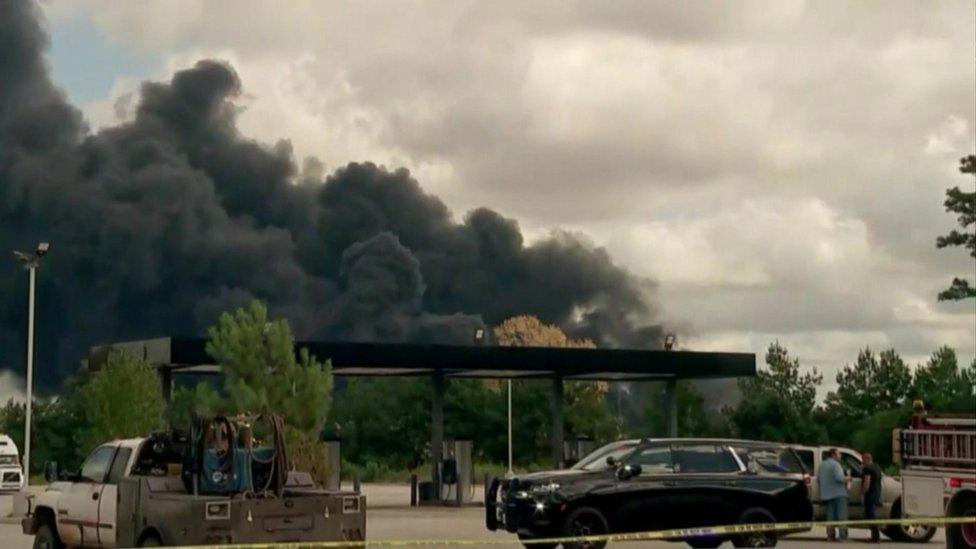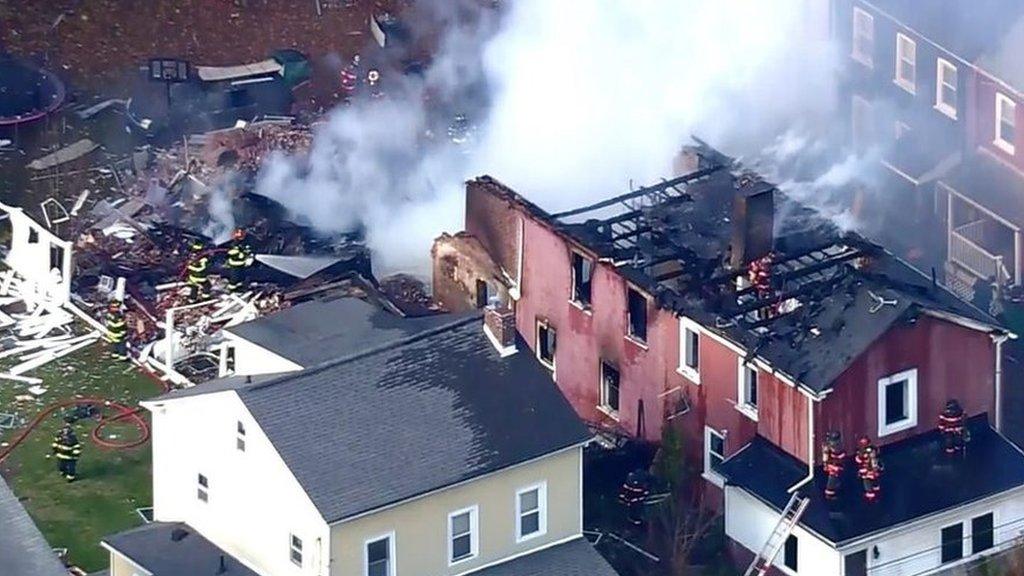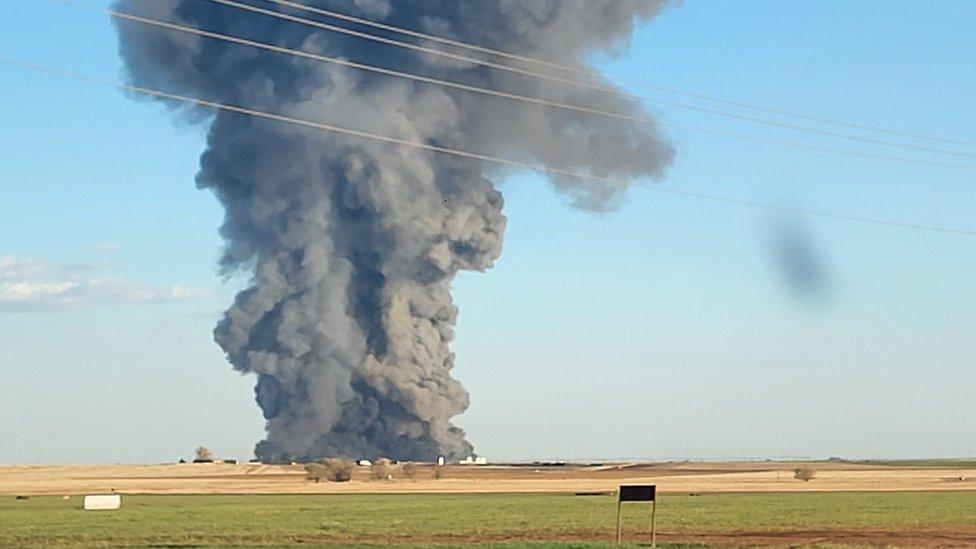Huge Texas chemical blast prompts stay-at-home order
- Published

A massive explosion at a Texas chemicals plant has left one person injured and triggered stay-at-home orders for miles around.
Vast plumes of smoke could be seen billowing from the petroleum plant in Shepherd, Texas - about an hour outside Houston - on Wednesday morning.
The blast followed a fire at the Sound Resource Solutions factory, which makes glue and paint remover.
Officials said the danger of the airborne chemicals remained "unknown".
But neighbouring Polk County Emergency Management department warned that the chemicals were known to have "acute toxicity" which could cause "serious eye damage or eye irritation, skin corrosion or irritation, aspiration hazard, and organ toxicity".
Watch: Texas chemical factory explosion causes massive fire
San Jacinto County Sheriff Greg Capers said 19 employees were working at the time of the explosion. He hinted that the blast had been caused by a "forklift" accident, but declined to offer further details.
Officials said smoke was more widespread in Polk County than in San Jacinto County, which houses the factory, after it was carried by a strong breeze.
A stay-at-home order was issued for all residents shortly after the initial blast at around 08:00 local time (14:00 GMT), initially covering a radius of five miles around the plant before being reduced to one mile.
A nearby private school with 31 children was also evacuated and the adjacent Highway 59 was closed.
By 13:00 local time much of the blaze was under control as some 25 crews battled the fire, officials said.
Geoff Harfield, the president of Sound Resource Solutions, told reporters during a news briefing that just one employee was injured in the blast and was being treated for minor burns.
"First responders have done an amazing job. They've been very cautious. They've made sure everyone is safe," he said. "I'm not worried about the business. All my people went home. That's what I care about."
Mr Harfield sought to calm nerves over the possibility of airborne chemicals.
He acknowledged that the plant stored "hazardous materials" but insisted they were "the type of material you probably have under your kitchen sink".
"It's not to be taken lightly, but we've been doing it well for a long time," Mr Harfield added.
The Texas Commission on Environmental Quality was setting up a monitoring unit to get information about any possible hazards, officials added.
Related topics
- Published3 November 2023

- Published13 April 2023

- Published18 April 2013
